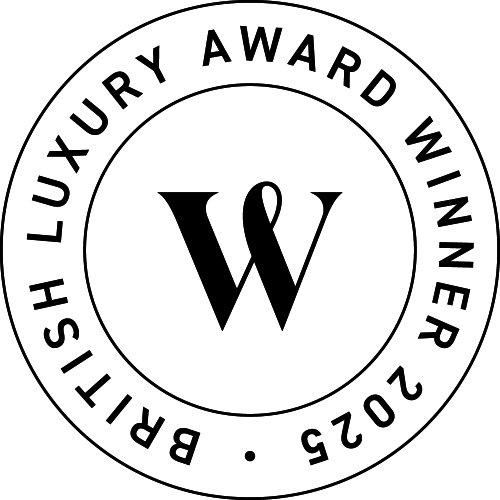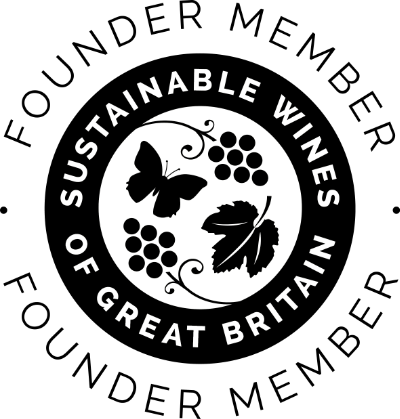Meet Adam Foden, our green-fingered Vineyard Manager in Sussex. Here, we talk sustainability, wildlife, work in the vineyard – and why axolotls make the coolest pets.
There’s always that moment in Radio 4’s classic show Desert Island Discs when the guest is cast away. Waves lap the shore. Seagulls cry. We’ve all imagined ourselves there – white sand underfoot, cyan sky above, truly alone.
No doubt, after the initial fruitless search for a barrel of rum and coconuts, most of us would be building the escape raft. But not Adam Foden. For here is a man who is happiest in his own company.
When you meet Adam – broad smile, genial, relaxed demeanour, easy conversation – he seems born to easy acquaintance. A social animal. As the head of our West Sussex vineyards, he’s well used to being in the thick of a team of workers. And he’s very good at it. But for Adam, happiness is when he has the vineyards to himself.
“I like my own company,” he says when we speak one early spring morning, over mugs of tea in the farm office. “I love a frosty morning best of all. Up at dawn before anyone is around. This is the best time of year.
“During Covid, the whole day was like a winter’s morning. There were no planes, no cars, no people. Bliss. You could hear every last detail of what was around. You could hear voles moving through the grass; you could hear dragonflies beating their wings. It was fascinating.”
A journey into wine and vine
Adam never set out to be a viticulturalist. He grew up working in forestry, planting trees by the thousands, and his early career was spent shaping landscapes rather than tending vines. But when the opportunity arose to move into viticulture, it was a natural fit. The land was the same and the principles weren’t so different – attention to detail, working with nature, the long-term thinking that comes with planting something that will outlive you.
“I didn’t train in vineyards, and I never thought farming was for me,” he says. “But once I got here, I realised it was just another way of working with the land. And that’s what I love.”
The Sussex vineyards were still young when Adam arrived. He remembers the first pruning seasons, the small team working through the rows, agency workers teaching him as much as he taught them. “I learned a lot – especially from the Romanians, they're exceptional farmers,” he says. “They just understand vines instinctively.”
A decade on, Adam now leads the team, but he’s kept the same approach – hands-on, detail-driven, always learning.
The human side of viticulture
For someone who prefers the quiet of the vines, Adam has a natural ability to build a team. And he has an outstanding one.
“I’ve been lucky to work with people who really care about what they do,” he says. “I want people here because they love it, not just because it’s a job.”
It’s a tight-knit crew. They work together, they eat together, they know when to push through and when to slow down. “There are a few people who’ve been here for years, and I hope they stay for many more,” he says.
Adam’s approach means that the team here work with a fair amount of autonomy, and a strong emphasis on respect for the land. “I don’t like micromanaging,” he says. “Everyone needs to take responsibility for their part in the vineyard. And if you love what you do, that’s not hard.”
A family affair
The vineyard isn’t just Adam’s workplace – it’s home. He and his wife Claire live on the estate, in a cottage just beyond the vines. Claire is just as much a part of Gusbourne as Adam, running the vineyard office, keeping everything organised, and making sure that the team, suppliers and logistics all run smoothly. “She’s the one that actually makes it all work,” Adam admits.
Their life here is built around the rhythms of the vineyard – the early starts, the long growing seasons, the bustle of harvest. And when the workday is done, it doesn’t mean stepping away from nature. Their home is filled with life. Two dogs – one “problematic” Tibetan terrier, one intensely affectionate cavapoo – keep them on their toes, alongside a bearded dragon, an axolotl, a Siamese fighting fish, and an ever-growing collection of beetles.
“We’ve got some grubs that take years to turn into beetles,” Adam laughs. “Beth, my daughter, is obsessed with them. We’re just waiting to see what hatches.”
And what about the axolotl? “Oh, they’re incredible,” he grins. “They can regrow their limbs. Even parts of their brains. Imagine that. It’s like something from a sci-fi film. My daughter has one, and honestly, I think it’s the coolest creature on the planet.”
For a man who spends his life learning from nature, perhaps it makes perfect sense that his favourite animal is one that never stops adapting, evolving and, given the right conditions, can regenerate indefinitely.
For the long term
Over his working life, Adam has planted close to a million plants and trees. A million. Isn’t that glorious? In a world where we’re all worrying about carbon footprints and our impact, this feels like such solid, reassuring evidence that there are people doing the right thing. And, yes – partly this is because, for Adam, there’s no better place to be than “amongst all the different colours of green in nature”.
But it’s also a deeply unselfish need to put more into the world than he takes. His approach is long-term – always thinking about the future health of the vineyard, the soil and this special slice of Sussex ecosystem.
“I want these vineyards to be here in a hundred years,” he says. “Still producing, still thriving. That would be a legacy worth leaving.”









